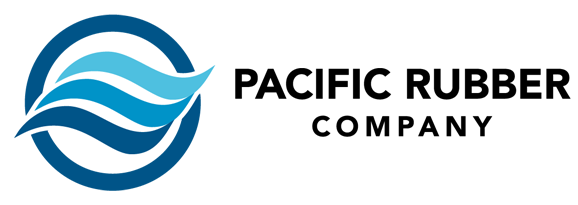Specifications
The rubber industry relies heavily on precise specifications to ensure the production of high-quality rubber products that meet the diverse needs of various sectors. These specifications encompass a wide range of factors, including raw materials, physical properties, manufacturing processes, and end-product requirements. Establishing and adhering to these specifications is essential for maintaining consistency, safety, and performance across the industry.
Raw material specifications form the foundation of rubber production. Different types of rubber, such as natural rubber and synthetic rubber compounds, require specific chemical compositions, purity levels, and physical properties. The specifications for these raw materials dictate the final characteristics of the rubber, including its flexibility, durability, and resistance to environmental factors like heat, chemicals, and weathering.
Physical properties are a crucial aspect of rubber specifications, encompassing attributes such as tensile strength, elongation, hardness, and tear resistance. These properties determine how the rubber will behave under different conditions and loads, enabling manufacturers to tailor their products to specific applications. For instance, tires require rubber with high tensile strength to withstand the stresses of road contact, while rubber gaskets demand excellent compression set resistance to maintain a proper seal over time.
Manufacturing processes in the rubber industry must adhere to stringent specifications to ensure consistent product quality. Specifications cover parameters such as temperature, pressure, curing time, and mixing ratios during compounding and molding processes. These controls are essential to achieve uniformity in rubber products, whether they are automotive parts, medical devices, or industrial seals. Deviating from these specifications can result in defects, reduced performance, and safety concerns.
End-product specifications define the desired characteristics of the final rubber goods. This can encompass factors like dimensions, color, surface finish, and specific performance attributes. For instance, rubber used in automotive belts must meet precise dimensional specifications to ensure proper fit, while rubber used in consumer electronics may need to exhibit specific electrical properties. Adhering to these specifications guarantees that the rubber products meet customer expectations and perform reliably in their intended applications.
In recent years, environmental sustainability has also become a key consideration in rubber industry specifications. As the demand for eco-friendly products grows, specifications now include requirements for recyclability, biodegradability, and reduced carbon footprint. These specifications drive innovation in rubber manufacturing, encouraging the development of more sustainable materials and processes to align with global environmental goals. In essence, specifications in the rubber industry are the backbone of quality assurance, innovation, and the ability to meet the diverse and evolving needs of modern society.
We are positioned to provide affordable solutions for long or short runs thanks to our flexible molding production capabilities and custom rubber compositions. To fully comprehend their difficulties and offer them specialized solutions, we collaborate closely with our customers. To kickstart your production, we also provide help with tool design.
Common Name:
Molded Slabs (FINISH)
Generally Resistant To:
Moderate Chemicals and Acids, Ozone, Oils, Fats, Greases, and Solvents
ASTM D 2000 / SAE J200 Classification:
BC, BE
Chemical Name:
Polychloroprene
Generally Attacked By:
Esters, Ketones, Chloronated, Aromatic and Nitro Hydrocarbons
MIL-R-3065 / SAE J-14 / MIL-STD-417 Classification:
SC
ASTM D-1418 Designation:
CR
Elongation:
100% to 800%
Hardness Range (Durometer Shore A):
20 to 95
Compression Set:
Good
Abrasion Resistance:
Very Good to Excellent
Impact Resistance:
Good to Excellent
Rebound Rating:
Fair to Very Good
Tear Resistance:
Good
Flame Resistance:
Very Good to Excellent
Flex Cracking Resistance:
Good to Very Good
Minimum Service Temperature:
-30°F to -70°F
Maximum Service Temperature:
+220°F to +280°F
Recommended Shelf Life:
5 to 10 years
Ozone Resistance:
Good
Steam Resistance:
Poor to Good
Weather Resistance:
Poor to Good
Oxidization Resistance:
Good
Gas Permeability:
Fair to Good
Sunlight Resistance:
Good to Very Good
Water Resistance:
Excellent
Radiation Resistance:
Good, 1 x 105 Ga Gy
Poor, 9 x 105 Ga Gy
Acetone:
Minor to Moderate Effect
Amonium Hydroxide:
Recommended: Little to Minor Effect
Animal Fats:
Minor to Moderate Effect
Carbon Dioxide:
Minor to Moderate Effect
Chlorine:
DRY: Moderate to Severe Effect
WET: NOT RECOMMENDED
Fluorine (Liquid):
– – –
Fuel Oil:
Minor to Moderate Effect
Gasoline:
Minor to Moderate Effect
Hydrochloric Acid 37%:
HOT: NOT RECOMMENDED
COLD: Minor to Moderate Effect
Hydrochloric Acid Concentrate 37%:
HOT: NOT RECOMMENDED
COLD: Minor to Moderate Effect
Kerosene:
Moderate to Severe Effect
Methyl Ethyl Ketone:
NOT RECOMMENDED
Mineral Oil:
Minor to Moderate Effect
Naptha:
Moderate to Severe Effect
Natural Gas:
RECOMMENDED: Little or Minor Effect
Nitric Acid:
Concentrate: Moderate to Severe Effect
Dillute: RECOMMENDED: Little or Minor Effect
Red Fuming: Minor to Moderate Effect
Petroleum:
Below 250: Minor to Moderate Effect
Above 250: NOT RECOMMENDED
Phosphoric Acid:
20%: Minor to Moderate Effect
45%: Minor to Moderate Effect
Propane:
NOT RECOMMENDED
Salt Water:
RECOMMENDED: Little or Minor Effect
Skydrol:
Skydrol 500: NOT RECOMMENDED
Skydrol 7000: NOT RECOMMENDED
Sodium Hydroxide:
RECOMMENDED: Little or Minor Effect
Sulfuric Acid:
Concentrate: NOT RECOMMENDED
Dillute: Minor to Moderate Effect
20% Oleum: NOT RECOMMENDED
Toluene:
NOT RECOMMENDED
Transformer Oil:
Minor to Moderate Effect
Vegetable Oils:
Minor to Moderate Effect
Vinegar:
RECOMMENDED: Little or Minor Effect
- Actual shelf life could vary dramatically based on storage conditions
- Store in a cool, dry place with temperature below 75°F
- Keep away from direct heat or open flames
- Avoid contact with solvents or other fluids
- Do not store in direct sunlight
- Keep products wrapped or sealed to minimize the absorption of moisture
- Store in a relaxed condition free from tension, compression or other deformation
See Rubber Storage Conditions for more information about how to properly store your rubber products.

